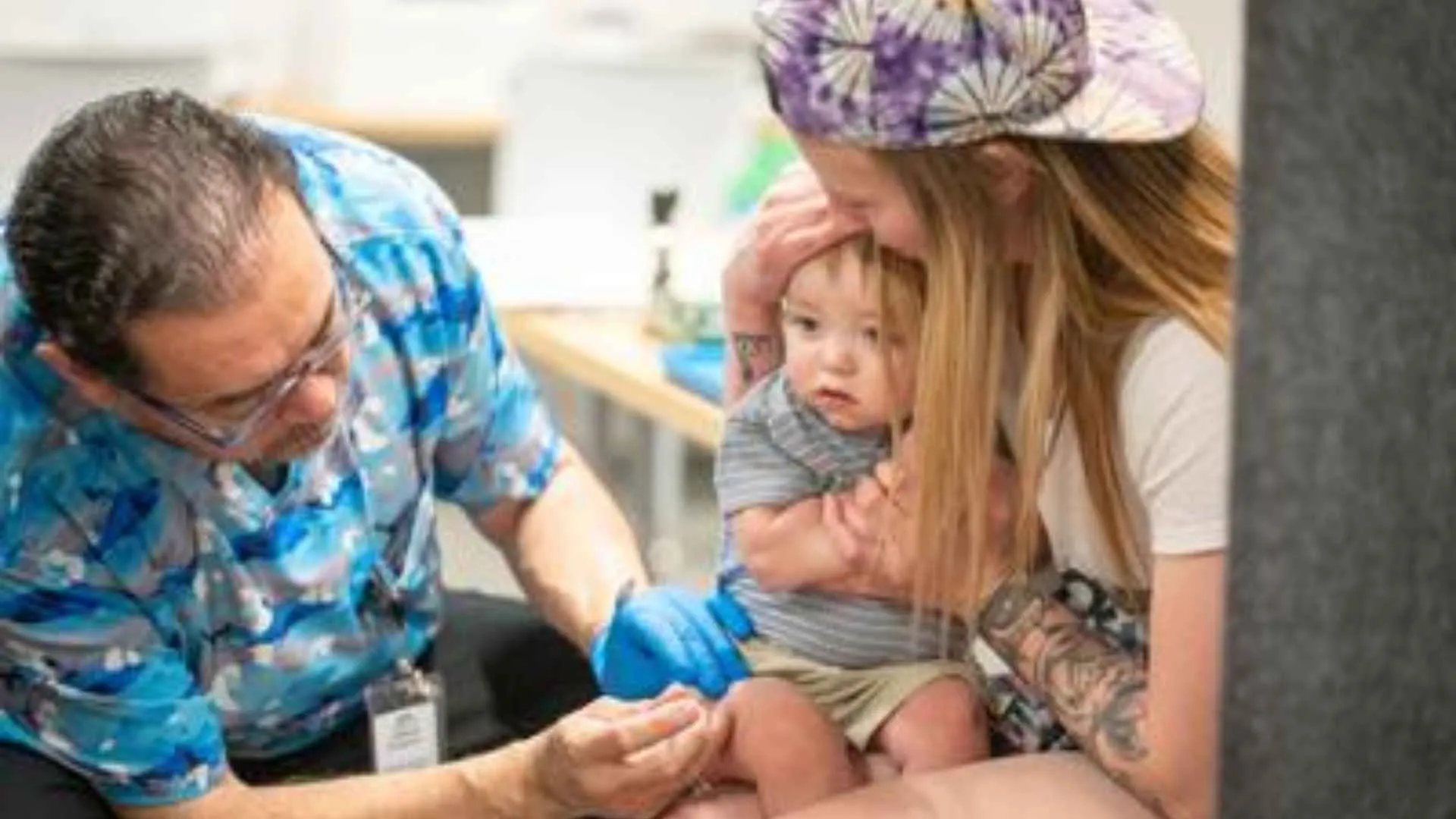A third child has died from measles in Texas, marking a grim milestone in the state’s rapidly expanding outbreak, the Department of Health and Human Services (HHS) confirmed late Saturday night. The school-aged girl, who had been diagnosed with measles, passed away at University Medical Center Children’s Hospital in Lubbock, the hospital said in a statement on Sunday morning. “The child was receiving treatment for complications of measles while hospitalized,” the hospital’s statement read.
“It is important to note that the child was not vaccinated against measles and had no known underlying health conditions. This unfortunate event underscores the importance of vaccination.” This marks the second pediatric fatality in Texas since the outbreak began in January, with nearly 500 confirmed cases in the state.

Additionally, an adult in New Mexico is suspected to have died from measles. These are the first reported measles-related deaths in the United States in a decade. Sharp Rise in Measles Cases and Hospitalizations As of Friday, the Texas Department of State Health Services reported 481 confirmed cases of measles, reflecting a 14% increase from the previous week.
Among the latest cases are six infants and toddlers from a Lubbock daycare center who tested positive in the past two weeks. Two of these young children are among 56 people who have been hospitalized due to complications from measles since the outbreak began. Health officials remain on high alert as the outbreak continues to spread beyond Texas.
Nationally, at least 628 measles cases have been reported across 21 states and Washington, D.C., according to an NBC News tally.
However, Lubbock’s public health director, Katherine Wells, warns that the true number is likely much higher, as many people are not being tested. Federal Response Measles Outbreak and Vaccine Advocacy U.S.
Health Secretary Robert F. Kennedy Jr. traveled to West Texas on Sunday following the child’s death.
In a post on X, he stated that he was in Gaines County—the outbreak’s epicenter—to meet with affected families. He also noted that the Centers for Disease Control and Prevention (CDC) had redeployed teams to Texas. “The most effective way to prevent the spread of measles is the MMR vaccine,” Kennedy wrote in his post.
Kennedy, who had previously been known for his anti-vaccine advocacy before becoming the nation’s top health official, has faced criticism for his response to the outbreak. While he has now publicly acknowledged the effectiveness of the measles, mumps, and rubella (MMR) vaccine, some officials argue that more forceful messaging is needed. Call for Stronger Public Health Messaging on Measles Republican Senator Bill Cassidy of Louisiana, a liver doctor who voted to confirm Kennedy as HHS Secretary, took to X on Sunday to urge health officials to be more direct in their recommendations.
“Everyone should be vaccinated! There is no treatment for measles. No benefit to getting measles,” Cassidy wrote. “Top health officials should say so unequivocally before another child dies.
” Cassidy has requested that Kennedy appear before his health committee on Thursday to discuss the outbreak, though Kennedy has not confirmed whether he will attend. Meanwhile, a CDC spokesperson reiterated the vaccine’s efficacy, stating that two doses of the MMR vaccine are 97% effective in preventing infection. However, in a departure from previous public health messaging, the spokesperson described vaccination as a “personal choice,” encouraging individuals to consult their doctors.
Misinformation and Barriers to Response Public health experts warn that misinformation about measles prevention and treatment is complicating efforts to contain the outbreak. Some proponents of holistic medicine, including Kennedy in the past, have promoted the use of vitamin A supplements as a preventive measure. However, doctors caution that vitamin A should only be given under medical supervision, as excessive doses can be dangerous.
Measles is a highly contagious respiratory virus that can linger in the air for up to two hours. According to the CDC, up to 90% of unvaccinated individuals exposed to the virus will become infected. Complications can be severe, with 1 to 3 out of every 1,000 infected children dying from respiratory or neurological issues.
Additionally, about 1 in 20 children with measles develops pneumonia, the leading cause of measles-related deaths in young children. Urgent Push for Vaccination With cases surging, health officials are urging families to get their children vaccinated. The CDC recommends the first dose of the MMR vaccine between 12 and 15 months of age and a second dose between ages 4 and 6.
During outbreaks, babies as young as 6 months old can receive their first dose earlier than usual. Also Read: Trump Administration Cuts Thousands Of Jobs At FDA, CDC And Other Health Agencies.
Health

Measles Outbreak in US Spirals: Third Child Dies in Texas as Cases Soar

A third child has died from measles in Texas, highlighting the deadly toll of the state’s worsening outbreak. As cases surge past 480, health officials warn that vaccine hesitancy is fueling the crisis.















